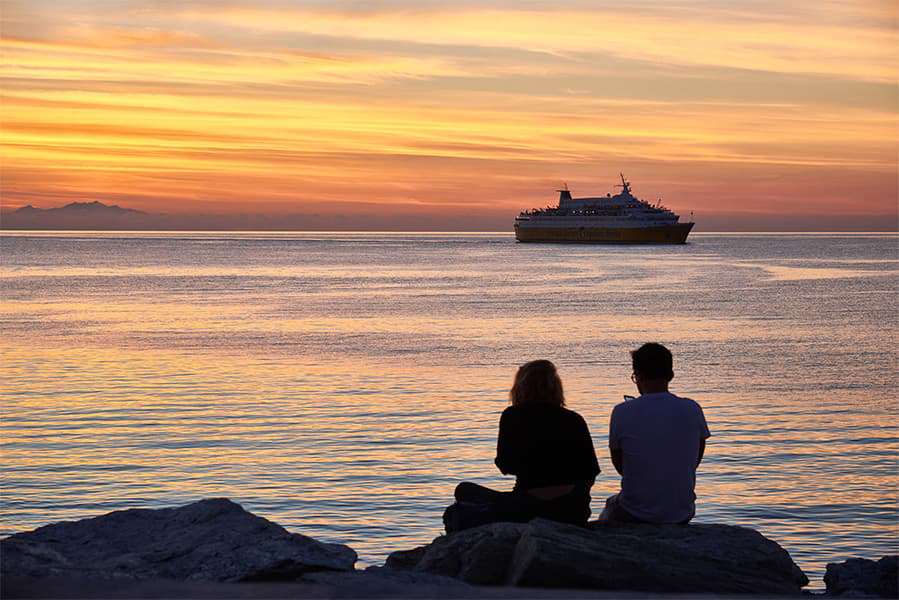Calheta - Angra do Heroismo
Ferries to Terceira
Calheta - Angra do Heroismo
Ferries to Terceira

The Calheta Angra do Heroismo ferry route connects Sao Jorge with Terceira. Currently there is just the 1 ferry company operating this ferry service, Atlanticoline. The crossing operates up to 2 times each week with sailing durations from around 3 hours.
Calheta Angra do Heroismo sailing durations and frequency may vary from season to season so we’d advise doing a live check to get the most up to date information.
More routes than anyone else.

Compare fares, times & routes in one place.
Change plans easily with flexi tickets.

Book e-tickets & manage trips in-app.
Live ship tracking & real-time updates.

Top-rated customer support when you need it.
Angra do Heroismo forms the southern half of the Azores Island, Terceira, in the North Atlantic. The small harbour is in the city’s historic centre, facing the Bay of Angra. The hilly landscape protects it from the prevailing winds, making it a popular destination for both yachts and ferries. The port has played an important role in Portuguese history as well. It was used as a meeting point for sailors exploring the Americas, Africa and Asia in the 16th Century.